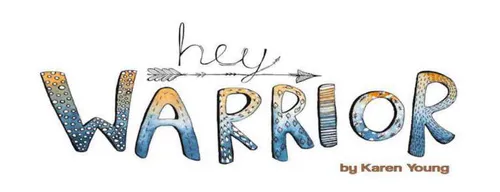HEY WARRIOR! | In-house Training
- Friday 1 January 2027
- 12:52 am - 12:52 am
- Your location
| Customer Rating | 4.8 out of 5 ⭐ |
|---|---|
| CPD Hrs | 7 |
In-house training: This topic can be presented as a keynote or workshop in your workplace, school or community. Email us.
Anxiety explained. Kids empowered!
Too many young people are being stifled by anxiety, and this number is on the rise. Fortunately, we are more equipped now than ever before to support them to live bravely and discover their full reach into the world, but the expanding impact of anxiety demands a new approach. This dynamic workshop will offer a fresh, innovative approach that pulls in many pieces missing from the way we’ve been responding to anxiety in children and adolescents. Far from being ‘another anxiety workshop’, this comprehensive approach will draw on neuroscience, evidence-based strategies, and highly respected therapeutic models to support practitioners in developing a fresh, impactful approach to working with anxiety in young people. We will explore anxiety from the ground up, developing a ‘roadmap’ for a therapeutic response to anxiety that will include key information, powerful strategies, and new responses to anxiety to effect immediate and long-term change.
Key content areas include:
- the neuroscience of anxiety and how to use this therapeutically as a scaffold to support young people towards enduring courage and resilience;
- how to change the relationship with anxiety, and why this is critical for children and their important adults;
- how to recognise when anxiety is fuelling behaviour, and how to respond;
- the popular behaviour management techniques that can make anxiety worse, and what to do instead;
- co-existing concerns and look-alike conditions;
- the different ways anxiety can manifest in young children and adolescents, and how to respond;
- how anxiety can interfere with learning and performance, and how to shift anxiety out of the way;
- making sense of separation anxiety, school anxiety, and school ‘refusal’ and how to respond effectively;
- how to engage parents to be changemakers;
- how loving parents might inadvertently feed anxiety and what to do instead - an actionable step-by-step response;
- what to do when parents feel ‘stuck’ - moving past the impasse;
- how to respond to anxiety in the moment to make way for calm and courage;
- building the toolbox - practical strategies to diminish anxiety and build brave behaviour;
- the four key responses to anxiety, and how to use this to inform a more effective response;
- bringing it all together - a therapeutic roadmap for working with anxiety.
Presented by: Karen Young translates the neuroscience of anxiety and every day life into meaningful advice for all ages. Karen began her career as a psychologist in private practice and is now recognised as a leading authority on child and adolescent anxiety. She has worked extensively with children, teens, and families, and in educational and organisational settings. She has lectured and has a Masters in Gestalt Therapy. Karen is the author of six books, including the bestselling 'Hey Warrior' and 'Hey Awesome', which creatively assist children to understand and manage anxiety, and build the capacity for self-regulation. Her other titles include 'Dear You, Love From Your Brain', 'But We're Not Lions', 'Ups and Downs', and the recently released 'Hey Warrior Workbook'. The books have been translated into a number of languages and have sold more than 200,000 copies worldwide.
Audience: for Mental Health and Education Professionals at all levels & any professional that applies attachment theory, neuroscience and behavioural/developmental/relational science to their practice.
Mental Health Professionals: All mental health professionals including, but not limited to Clinical Counsellors, Psychologists, Psychotherapists, Psychiatrists, Social Workers, Nurses, Occupational Therapists, Youth Workers, Mental Health Workers, Family Therapists, Child Protection/Disability Workers, Guidance Officers, Speech Language Therapists, Residential Care Workers, Foster Support Workers, General Practitioners and all other mental health professionals looking to enhance their therapeutic skills.
Education Professionals: Professionals who teach children or youth including, but not limited to Teachers, Principals, School Counsellors, School Paraprofessionals and all other professionals who support behavioural challenges and complex learning needs.











